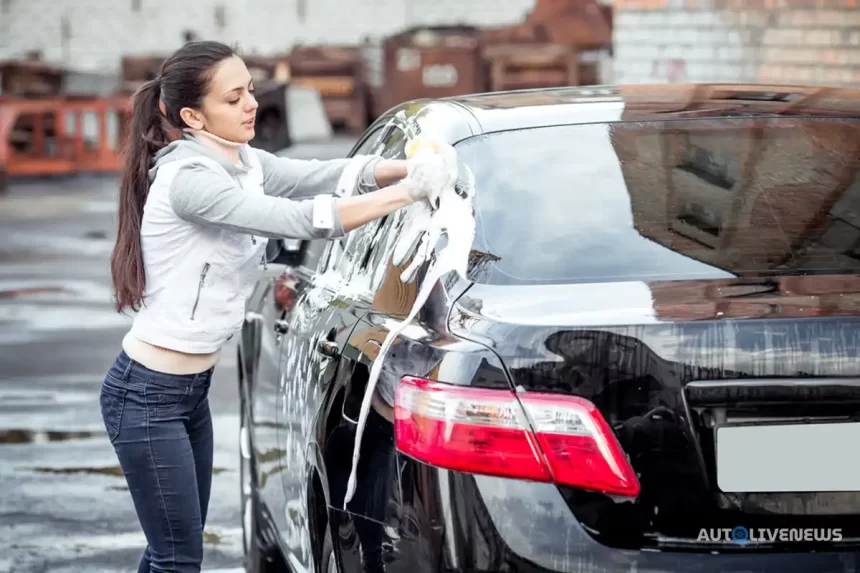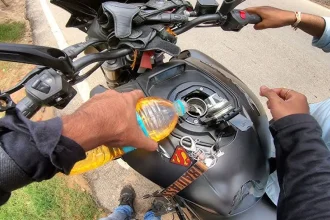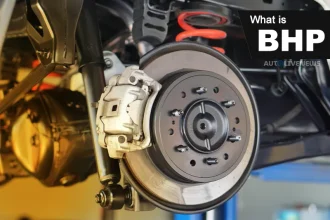Washing your car is an essential part of vehicle maintenance, ensuring it stays clean, shiny, and protected from the elements. Many car owners wonder if household items like dish soap can be used for this task, leading to the common question, “Can I use dish soap to wash my car?” While it may seem like a convenient solution, the answer requires careful consideration. In this detailed guide, we’ll explore whether dish soap is safe for your car, alternative options, and provide you with an example to help clarify the consequences.
What Is Dish Soap Designed For?
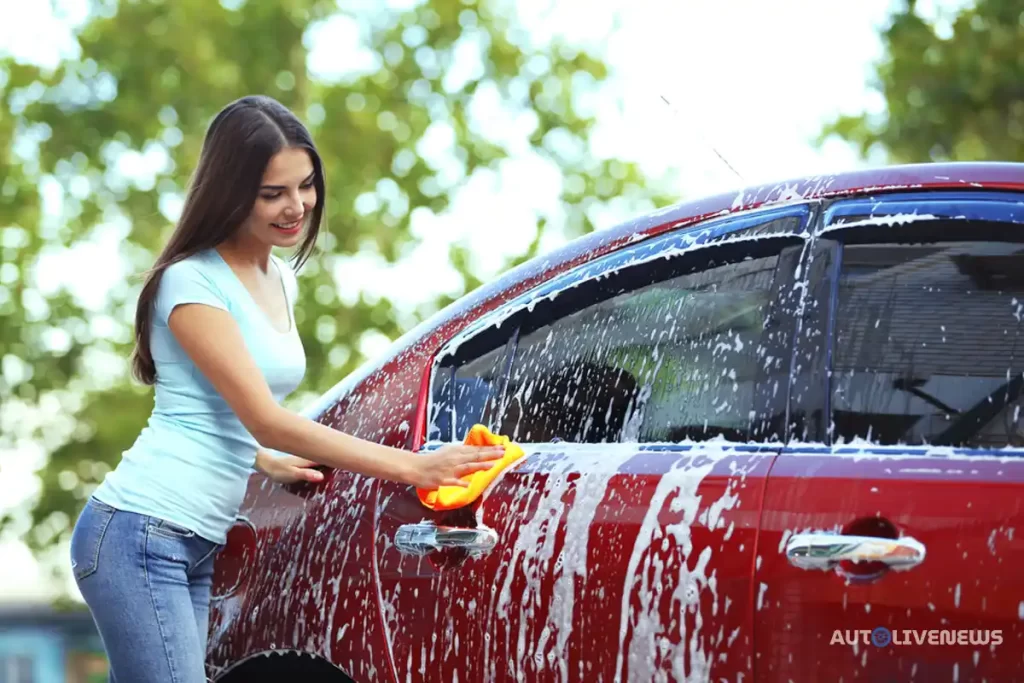
Dish soap is a powerful cleaning agent designed to cut through grease, oil, and food residue on dishes. It’s formulated to break down tough substances, which is why it works so well on plates, pots, and pans. However, this strength can become a disadvantage when used on car paint.
When people ask, “Can I use dish soap to wash my car?” they are often attracted to its affordability and easy availability. However, dish soap’s formula isn’t meant for automotive surfaces, and using it could cause damage in the long run.
Also read: what is SUV car?
Top 5 Reasons Why Dish Soap Isn’t Ideal for Washing Cars
Dish soap might seem like a quick fix, but here are some reasons why it may not be the best option for cleaning your car:
- Harsh Chemicals: Dish soap is designed to cut through grease, meaning it contains strong chemicals that can strip away not just grime but also protective layers on your car, such as wax. This leaves your car’s paint more vulnerable to environmental damage.
- Paint Damage: Dish soap is not pH-balanced for car paint. Regular use can dull the car’s finish over time and make the paint appear less glossy. While it may not cause immediate harm, prolonged use can degrade the car’s outer coating.
- Stripping of Wax and Sealants: Wax and sealants protect your car’s paint from UV rays, rain, dirt, and other external elements. If you use dish soap, it can strip away these protective layers, leaving your vehicle exposed to damage, including rust and fading.
- Tough on Rubber and Plastic Parts: Dish soap can also be harmful to other components of your car, such as rubber seals and plastic trims. The chemicals in dish soap can dry out these materials, causing them to crack and degrade over time.
- Water Spots: Since dish soap isn’t formulated for cars, it can leave water spots on the paint, especially if you’re washing your vehicle in the sun or using hard water. These spots can be difficult to remove and may even etch into the clear coat.
Also read: What is a Hatchback Car?
When Can You Use Dish Soap?
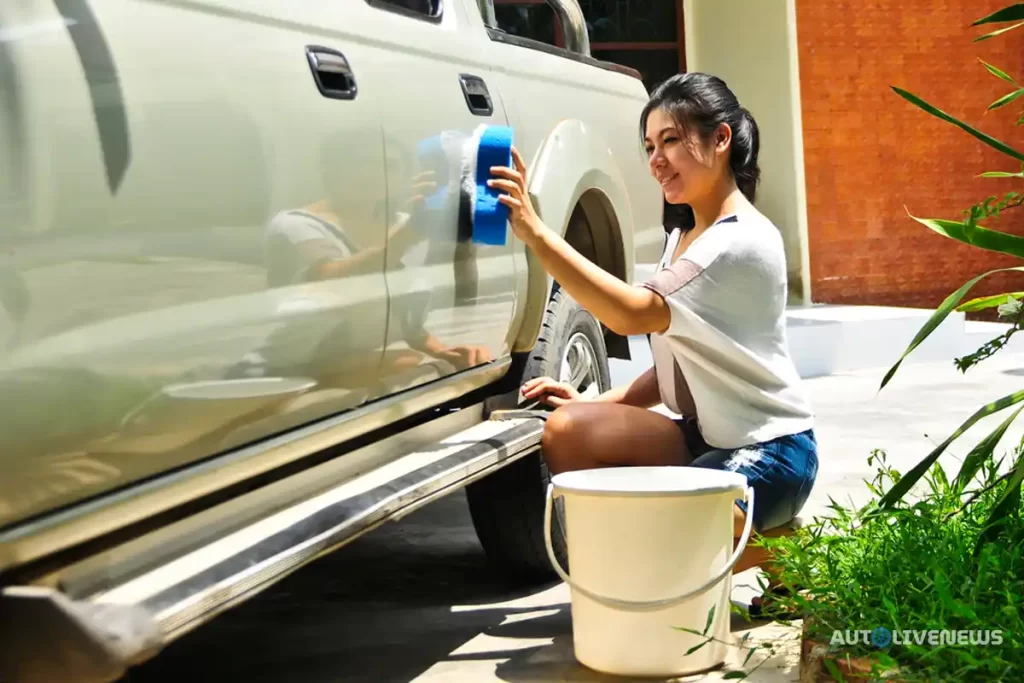
There are very limited situations where dish soap can be used. If you are preparing your car for a complete detailing job, including waxing and sealing, some professionals use dish soap as a one-time, deep-cleaning agent to strip away all previous layers of wax and contaminants. This method is intended as a pre-step before applying new protection and is done under controlled conditions with proper follow-up using appropriate products.
Conclusion: Can I use dish soap to wash my car?
To conclude, can I use dish soap to wash my car? While it may seem like a quick solution, using dish soap to clean your car is not recommended. Its powerful grease-cutting chemicals can strip wax, dull your paint, and damage other exterior components. Instead, opt for products specifically designed for cars, such as car shampoo, to ensure that your vehicle stays clean, shiny, and well-protected.
Frequently Asked Questions ( FAQs)
Can I use dish soap to wash my car in an emergency?
It’s best to avoid dish soap entirely. If you must wash your car and don’t have any car shampoo, use plain water and soft towels for a quick rinse.
What’s the best product to wash my car?
A high-quality, pH-balanced car shampoo is the best product for washing your vehicle.
Can dish soap damage my car’s paint?
Yes, dish soap can strip away protective layers and cause the paint to lose its shine over time.



